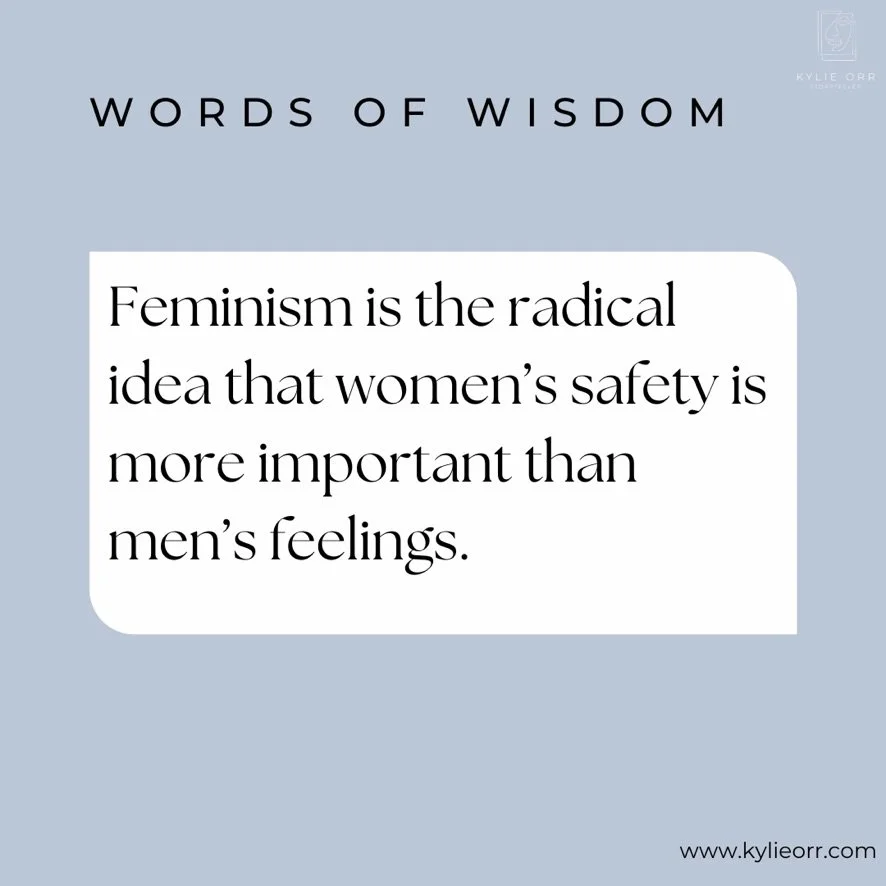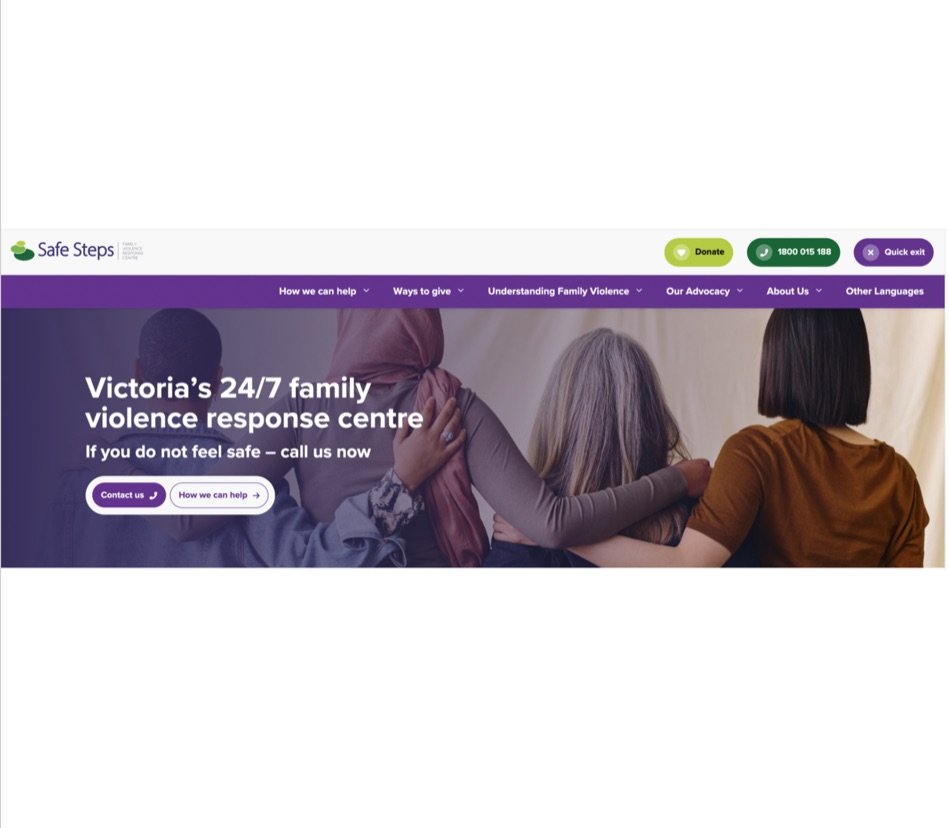[Un]reasonably outraged by women’s lack of safety
I posted a quote on my social media on International Women’s Day (8 March 2024) and it has got me thinking deeply about this topic. At that stage, there had been 16 women killed at the hands of men in Australia. Eleven weeks into the year. More than one woman a week.
My outrage about women’s safety—or lack thereof—is not unreasonable at all. Women are being killed by men and we don’t feel safe.
Samantha Murphy is sadly now a name most people in Australia know because she went for a run in the forest on a Sunday morning and never came back. Fifty-one years old, a wife and a mother to three kids, her family is now left to grieve not just the loss of someone too young, but a seemingly violent end to her life.
I have been speaking about women’s safety at recent book events because it’s a strong theme in my second novel. I’ve talked about how women operate with a constant sense of our surroundings. Low-level surveillance is a basic requirement for us as we navigate the world, and that level usually ramps up if we are walking somewhere alone, even in the daytime. Sometimes we feel it when we are with friends too, continually searching for signs of a man who may strike out, at any moment. Women are also not safe in their homes because their husbands and brothers and sons are killing them. On average, one woman is killed every nine days by a current or former partner (more stats here).
We are exhausted but cannot afford to be anything but vigilant.
Here is an excerpt from my novel that I was asked to read aloud in a radio interview about women’s safety. Gracie is in the car with her best friend Sassy and a ute is driving aggressively.
‘Have you ever noticed that most of the road rage comes from men?’ I said.
‘No shit.’
‘I mean, honestly, if I miss my turn-off I don’t swerve across three lanes causing accidents so I can get to where I need to go. I keep going until I can find somewhere to turn around. It’s such an entitled way to drive.’
‘It’s never occurred to me to tailgate someone until they pull off the road,’ Sass said. ‘Worst thing I’ve done is flipped them the bird.’
‘Welcome to being a woman. We don’t do stuff that could end in danger.’
Not that I would ever consciously participate in road rage, but it pissed me off that we didn’t really have the option to even if we wanted. I’d like to meet the woman who felt safe enough to take on a man who’d wronged her. I was full to the brim with rage, yet we were taught to keep ourselves safe, to act in a way that wouldn’t draw unwelcome attention, that could endanger our lives. We had to swallow our fury, suck it up, move on. And the angry men? No accountability. They continued blasting their way through life, seeking out anyone who dared cross their lane.
The interviewer said it sounded like I was venting some of my own frustrations here and she was right.
Case in point: I attended the P!nk concert with my 13-year-old daughter. Driving on a residential road (speed limit 60km/hr) a large 4WD vehicle was tailgating me. An angry young man with a male passenger trying to run down cars who were in their way. When the single lane broadened out to two, the car sped past. I looked at him as he overtook me, wondering who this man was and why he needed to drive so aggressively. He pulled in front of me and slammed on his brakes. I had to stop suddenly. It should be shocking that a man would have such hostility, that he would attempt to cause an accident with another driver and her child, when all I did was LOOK at him. Sadly, it has happened before.
Men have chatted to me at the end of events and told me they learned something new, that they’d never thought about some of the issues I’d raised. Some admitted they had also been the recipients of male rage. Men—good men—feel the gravity of gender-based violence too. Albeit, in other ways. An interesting discussion with one woman’s partner gave a different perspective: he runs along a bike track and said he doesn’t feel unsafe himself but often feels uncomfortable as he approaches women along the track. He notices their bodies stiffen as he comes up behind them and desperately wants to say, I’m not that guy, I won’t hurt you, I’m just out for a run too. But how is she to know that? “Not all men” is a useless statement because how do women know which men are the ones we should be wary of? The ones that might rape or kill us? We don’t. So we are wary of all men.
Good men want to be able to live in a world where women feel safe too. Good men stand by women and want to see the violent and aggressive behaviour of other men called out. And we need those men to speak out because women’s concerns have been dismissed for a long time. We are labelled hysterical. Accused of overstating our safety concerns.
There is a research group called Counting Dead Women Australia. Counting dead women. That would not need to exist if this were not a problem. A crisis.
You know what else outrages me? When you go to websites to read up on the topic, there is a Quick Exit button. Because how dare a woman be searching for resources to keep her safe. Safe in her own home, safe at work, safe on the streets. She needs a way out so her violent partner won’t beat her for simply reading about her options. Because she belongs to him, after all.
It seems I am lucky. I was raised by a strong and caring father, and I have a loving and respectful husband. Together we are raising three kind and empathetic sons. I’m confident they will be good men. But until the world is safe for women to exist like men do—without relentless surveillance of our surroundings—we cannot have equality.
If you need support, please contact:
How do you feel about women’s safety? Join the conversation on Substack.
Kx






